@Tobylou8 said in A little humour:
I had a dream the ocean was filled with orange soda.
It was a Fanta Sea

@Tobylou8 said in A little humour:
I had a dream the ocean was filled with orange soda.
It was a Fanta Sea

Yes, that's a keyed bugle, not a valved bugle. Valved bugles are basically the forerunner of the flugelhorn. You'd think people at a museum would be able to get something so simple labled correctly, but I saw one of the instruments in the Gettysburg museum labled incorrectly, too.
By trial and error, I learned to play a borrowed Eb keyed bugle a number of years ago and performed a few simple pieces on it before the owner asked for it back and traded it for another instrument. There was no "standard" setup for them, and the number of keys varied from horn to horn. If I remember correctly, all the keys raise the pitch, except for the one nearest the bell flare, which is normally open and lowers the pitch when used.
I'm using the "Dale Proctor" avatar with his permission. We are pretty tight...lol
Born in Tennessee, live in another state now. I've performed in 16 states that I can recall.
I've never had a headache from playing with out of tune "musicians", but it is a pain in the butt.
@Niner I'll buy that. Sorry for the mischaracterization.
I have this old Conn that's pretty neat. I think it's a 9A or something like that...
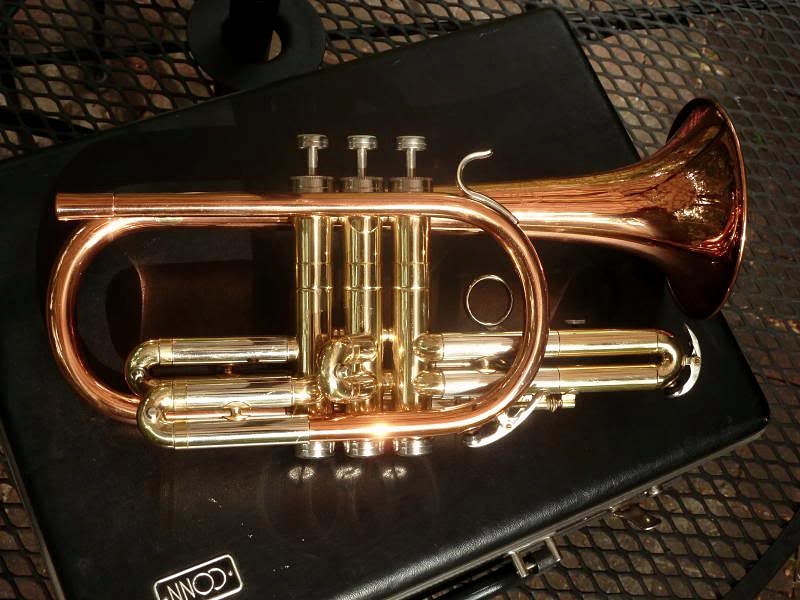
@Dr-GO said in Does a large bore horn take more air?:
@grune said in Does a large bore horn take more air?:
@Kehaulani What do you mean, "take more air"? Technically, yes, a larger bore is a larger diameter, which creates a larger volume of air.
The volume of air in a horn is static. Large bore, medium bore or small bore. We do not replace that air when we blow into the mouthpiece, but are vibrating the air that is already there. So it takes no increase in air (more air) in a large bore horn if the efficiency in the vibratory freedom of that horn moves the sound wave through the medium filling the horn.
I'll disagree a bit. True, the air is already in the horn, but the act of blowing to induce lip vibration does move air through the instrument.
They were probably playing a couple cheap Chinese trumpets that wouldn't play in tune...lol
H. Lenhert, Philadelphia, was in business from 1867-1914. Henry G. Lehnert (1838-1916), founder of the company, arrived in Boston from Saxony ca 1860 with his brother Carl. Early Boston directories indicate that they both worked either for E. G. Wright or for Graves & Co., then joining Freemantle & Co. before establishing business as Henry Lehnert & Co. In 1866 Henry moved to Philadelphia and started his brass musical instrument manufacturing business. He held a patent for the tapered cornet leadpipe and frequently used Allen rotary valves and German silver in the manufacture of his instruments, which had a very good reputation for quality. From 1876 through 1914, his instruments bore the trade name "American Standard".
This is the one I own, made of German silver with Allen valves, ca 1870.
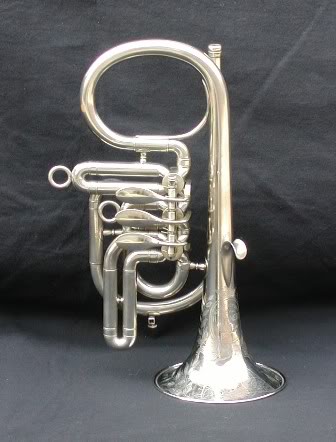
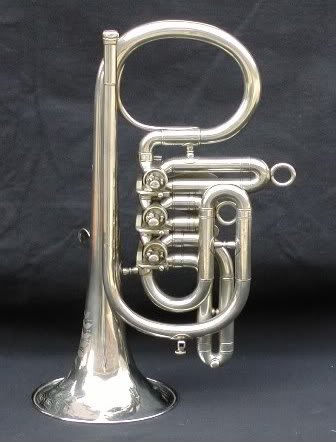
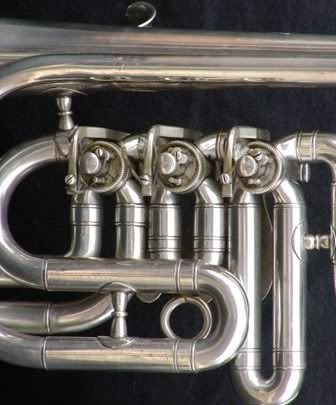
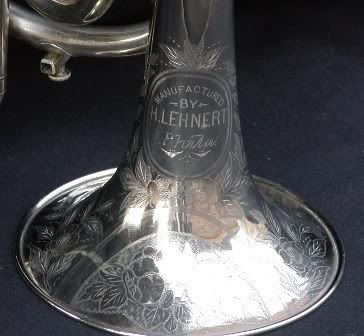
The top line F is sharp on my Bach 184 cornet. I always have to trigger the 1st valve slide a little to get it in tune. How sharp it is varies with the mouthpiece I'm using. The top line F on my Bach 43 trumpet is spot-on in tune, though.
The old 1960s Conn Director cornet has a huge .484 bore and is a student-level cornet. It's really easy to play.
I used to have a '54 Conn 80A. Interesting instrument that played pretty well, but I wasn't too impressed by it. I played it occasionally for a few years and recently sold it.
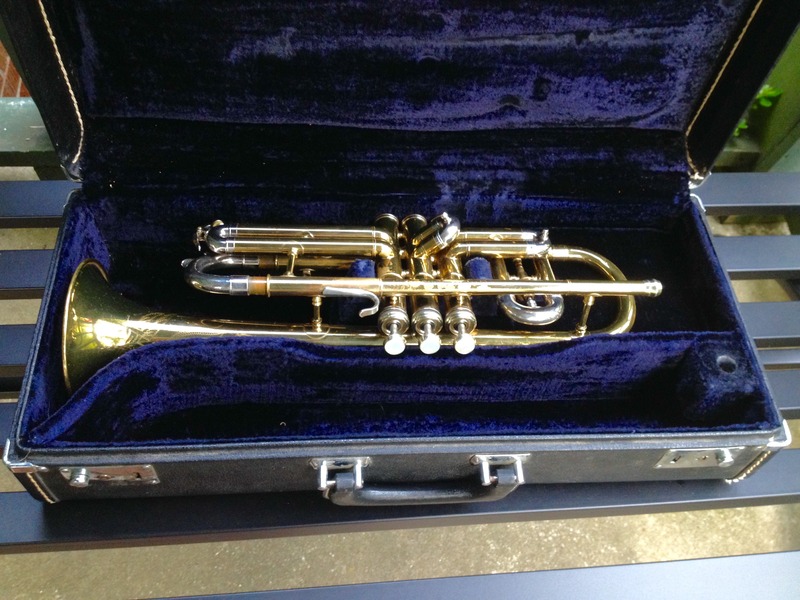
I have a really nice 1960 6B with that same "tweed" case. The trumpet is the next generation, though.
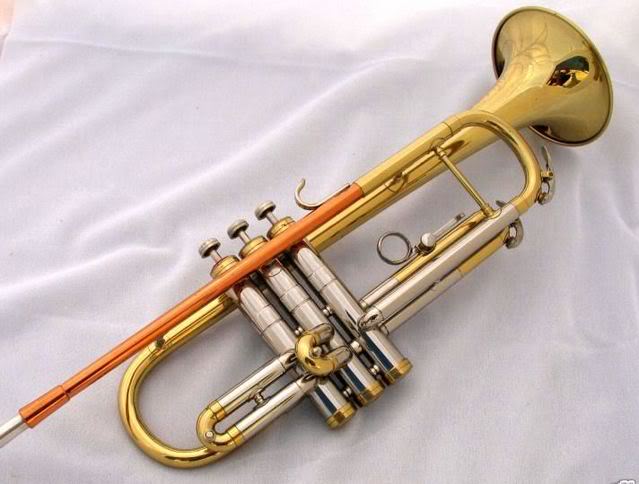
Medium bore Committees are not as desirable as the large bore ones.
It's not extremely early, though, since it has the vertical brace between the tuning slide receivers.
I have more respect for neighborhood peace and quiet than to practice outside. I'm inside the house with the bedroom door closed. If people want to hear me play, they can come to a gig and hear it...lol
A little vibrato goes a long way. Years ago, I got into the bad habit of using vibrato on everything. I don't think it belongs in most classical, baroque, etc. music, though, and it was a hard habit to break. I still use just a little on solo passages, but that's about it. When asked why he didn't use vibrato, Miles Davis responded that he would when he got old and couldn't hold the trumpet steady any more (or something to that effect).